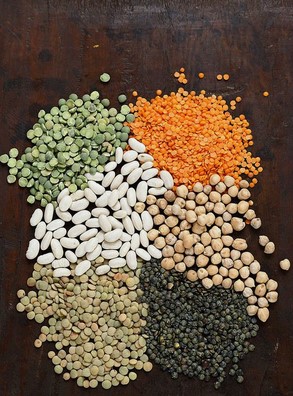Famine is one of the most devastating humanitarian crises, affecting millions of people and threatening food security on a global scale. While various interventions and aid initiatives play a crucial role in addressing immediate food shortages during famines, proactive measures such as famine prevention through insurance are gaining traction as a sustainable solution. This article delves into the pivotal role of insurance in preventing famines and ensuring equitable access to food for vulnerable populations.
Understanding Famine and its Impact
Famine is characterized by extreme food shortages, malnutrition, and heightened mortality rates, often resulting from a combination of natural disasters, conflict, and socio-economic factors. The consequences of famine are dire, leading to long-term health issues, displacement, and socio-economic instability. Addressing the root causes of famine and building resilience against food insecurity are essential for sustainable development and poverty alleviation.
Insurance as a Risk Management Tool
Insurance serves as a risk management tool that can help mitigate the impact of food shortages and famine by providing financial protection and support to farmers, communities, and governments. By transferring the risk of crop failures, livestock losses, and other agricultural challenges to insurance providers, stakeholders can access the necessary resources to recover from shocks and maintain food production.
Crop and Livestock Insurance
Crop and livestock insurance play a vital role in protecting farmers against yield losses due to droughts, floods, pests, and diseases. By providing compensation for crop failures and livestock deaths, insurance enables farmers to invest in resilient farming practices, adopt climate-smart technologies, and diversify their livelihoods. This proactive approach strengthens agricultural productivity and reduces vulnerability to food insecurity.
Index-Based Insurance
Index-based insurance is a innovative insurance model that uses specific indicators, such as rainfall levels or vegetation health, to trigger payouts when predetermined thresholds are met. This approach eliminates the need for time-consuming and costly claims assessments, enabling rapid response and assistance during food crises. Index-based insurance is particularly beneficial for remote and marginalized communities that lack access to traditional insurance services.
Government and Institutional Support
Governments, international organizations, and NGOs play a critical role in promoting and facilitating famine prevention through insurance. By offering subsidies, creating regulatory frameworks, and supporting capacity-building initiatives, these entities can foster an enabling environment for insurance market development and ensure that the most vulnerable populations have access to affordable and effective insurance products.
Community Engagement and Awareness
Community engagement and awareness-raising campaigns are essential for the successful implementation of famine prevention insurance schemes. By educating farmers, pastoralists, and local communities about the benefits of insurance, the importance of risk management, and the available options, stakeholders can increase uptake and foster a culture of resilience and preparedness against food insecurity.
Collaboration and Partnerships
Collaboration and partnerships among governments, insurance providers, NGOs, and other stakeholders are key to scaling up famine prevention efforts and ensuring a holistic approach to food security. By pooling resources, sharing knowledge and expertise, and coordinating interventions, these collaborative initiatives can create synergies and maximize impact in preventing famines and promoting sustainable development.
Conclusion
Famine prevention through insurance is a forward-thinking and sustainable approach to addressing food insecurity and building resilience against the devastating impacts of famines. By leveraging insurance as a risk management tool, stakeholders can access the financial resources needed to recover from agricultural shocks, maintain food production, and ensure equitable access to food for all.
In conclusion, insurance plays a pivotal role in transforming the way we approach famine prevention and food security. By integrating insurance into broader development strategies, fostering an enabling environment for insurance market development, promoting community engagement and awareness, and fostering collaboration and partnerships, we can build a more resilient, sustainable, and equitable food system that leaves no one behind. Embracing insurance as a key component of famine prevention efforts is a proactive step towards creating a world free from hunger and ensuring a brighter future for generations to come.
